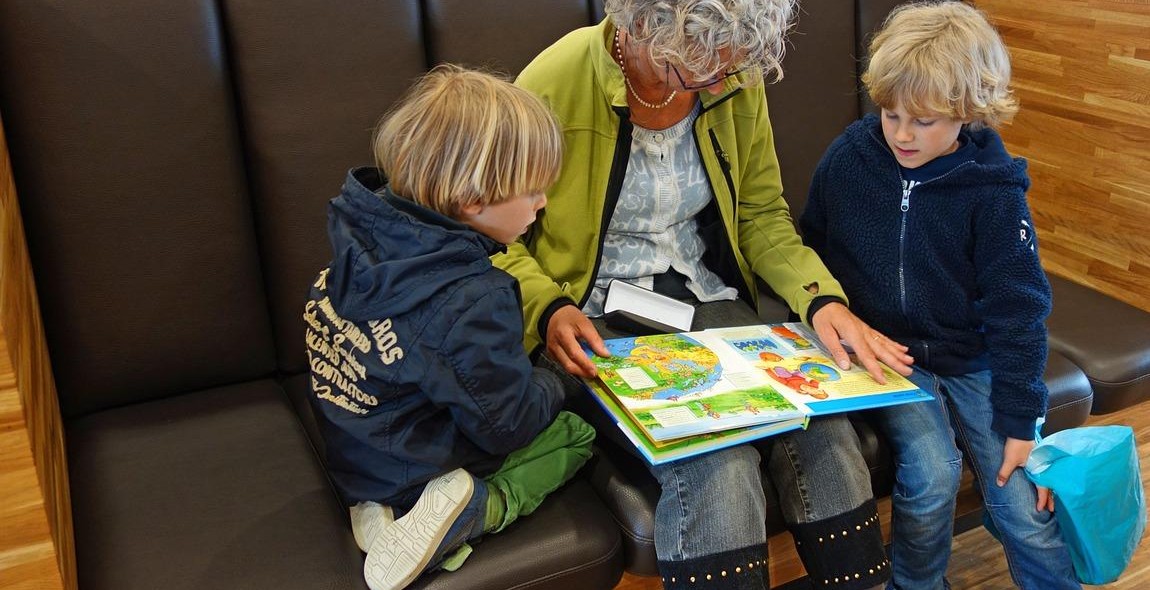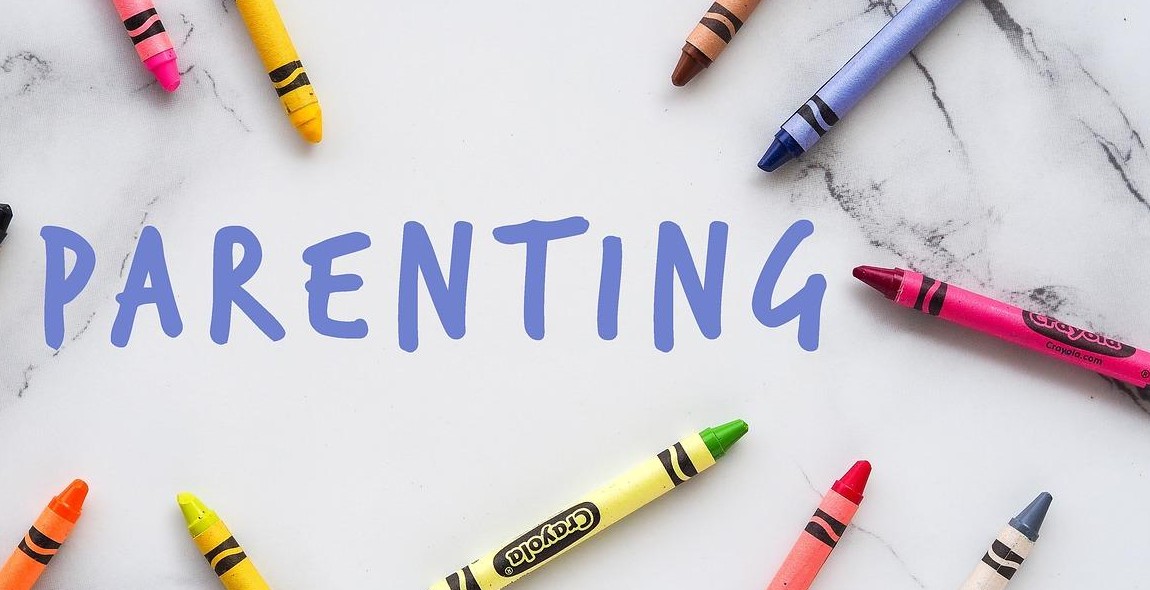Decoding Your Child’s Behavior: A Guide for Concerned Parents
As a professional article writer and content creator with years of experience in child psychology, I understand the concerns that parents have when it comes to their children’s behavior. It can be challenging to decipher the reasons behind your child’s actions, especially when they are too young to express themselves properly. However, understanding your child’s behavior is crucial to ensure their emotional and mental well-being.
Through my personal experience and research in the field, I have created this guide to help concerned parents decode their child’s behavior. In this guide, I will provide insights into the various factors that influence a child’s behavior, including their age, personality, and environment. We will also explore common behavioral issues that parents may encounter, such as tantrums, aggression, and anxiety, and provide practical solutions to manage them.
Whether you’re a first-time parent or have multiple children, this guide will give you the tools and knowledge needed to understand your child’s behavior better. By the end of this guide, you’ll be equipped with the skills to help your child navigate through their emotions and behaviors, leading to a happier and healthier family dynamic.

Understanding Child Behavior
As a concerned parent, it is important to understand that your child’s behavior is influenced by various factors, including genetics, environment, and developmental stages.
The Influence of Genetics
Genetics plays a significant role in shaping a child’s behavior. Some behaviors are inherited, such as temperament and personality traits. For example, a child may be naturally more outgoing or introverted, more emotional or reserved, or more impulsive or cautious. These traits are largely determined by their genetic makeup.
However, it is important to note that genetics is not the only factor that determines a child’s behavior. Environment and experiences also play a crucial role.
The Role of Environment
The environment a child grows up in can have a significant impact on their behavior. Children who grow up in a nurturing and supportive environment are more likely to develop positive behaviors, such as empathy, kindness, and cooperation. On the other hand, children who grow up in a negative environment, such as one filled with conflict or neglect, may be more likely to develop negative behaviors, such as aggression, defiance, and anxiety.
It is important for parents to create a positive and supportive environment for their children. This can include providing a stable home life, setting clear boundaries and expectations, and providing opportunities for positive social interactions and activities.
The Impact of Developmental Stages
Children go through various stages of development, each of which can impact their behavior. For example, toddlers may exhibit behavior such as temper tantrums and defiance as they learn to assert their independence. School-aged children may become more social and seek greater independence, while also facing new challenges such as peer pressure and academic demands.
Understanding your child’s developmental stage can help you better understand and respond to their behavior. It is important to provide age-appropriate guidance and support, while also encouraging their individuality and independence.
| Factors Influencing Child Behavior | Examples |
|---|---|
| Genetics | Temperament, personality traits |
| Environment | Home life, social interactions, experiences |
| Developmental Stages | Toddlerhood, school-aged, adolescence |
By understanding the various factors that influence a child’s behavior, parents can better support and guide their children as they grow and develop. It is important to provide a positive and nurturing environment, while also acknowledging and respecting their individuality and unique personality traits.

Common Behavioral Issues in Children
As a parent, it can be difficult to decipher your child’s behavior, especially when it seems out of the ordinary. However, it’s important to remember that behavioral issues in children are common and can be addressed with the right approach. Let’s take a look at some of the most common behavioral issues in children and how to handle them.
Temper Tantrums
Temper tantrums are a normal part of a child’s development and are often a result of frustration or an inability to communicate effectively. It’s important to remain calm and not give in to your child’s demands during a tantrum. Instead, try to distract them with a different activity or offer them a choice to help them regain control. Consistent discipline and positive reinforcement for good behavior can also help reduce the frequency of tantrums.
Aggression and Defiance
Aggressive and defiant behavior can be a sign of underlying emotional or psychological issues. It’s important to address these behaviors early on to prevent them from escalating. Encourage your child to express their feelings in a healthy way and provide them with positive outlets for their energy, such as sports or music. Consistent discipline and setting clear boundaries can also help reduce aggression and defiance.
Anxiety and Fear
Anxiety and fear can manifest in a variety of ways in children, such as separation anxiety or fear of the dark. It’s important to validate your child’s feelings and provide them with a safe and supportive environment. Encourage your child to talk about their fears and provide them with coping mechanisms, such as deep breathing exercises or visualization techniques. Seeking professional help may also be necessary if the anxiety and fear are severe.
Attention Deficit Hyperactivity Disorder (ADHD)
ADHD is a common behavioral disorder in children that can manifest as hyperactivity, impulsivity, and difficulty focusing. It’s important to seek a professional diagnosis if you suspect your child has ADHD. Treatment options may include medication, therapy, and behavioral interventions. Consistent routines and clear expectations can also help manage symptoms of ADHD.
| Behavioral Issue | Management Techniques |
|---|---|
| Temper Tantrums | Consistent discipline, positive reinforcement, distraction, and offering choices |
| Aggression and Defiance | Encouraging healthy expression of feelings, positive outlets for energy, consistent discipline, and setting clear boundaries |
| Anxiety and Fear | Validating feelings, providing a safe and supportive environment, encouraging communication, and providing coping mechanisms |
| Attention Deficit Hyperactivity Disorder (ADHD) | Professional diagnosis, medication, therapy, behavioral interventions, consistent routines, and clear expectations |

Effective Parenting Strategies
As a parent, it is important to understand that your child’s behavior is a form of communication. It is their way of expressing their needs, wants, and emotions. Decoding this behavior can be challenging, but implementing effective parenting strategies can help you better understand and respond to your child’s needs.
Positive Reinforcement
One of the most effective parenting strategies is positive reinforcement. Praising your child for good behavior and accomplishments can help boost their self-esteem and encourage them to continue making good choices. This can be as simple as saying “great job” or “I’m proud of you” when they do something well. It is important to be specific with your praise, so your child knows exactly what behavior you are reinforcing.
Clear Communication
Clear communication is another crucial parenting strategy. It is important to listen actively to your child and communicate clearly and effectively with them. This means using age-appropriate language and being open and honest with your child. Encourage your child to express their thoughts and feelings, and validate their emotions. This will help build trust and strengthen your relationship with your child.
Establishing Boundaries
Establishing boundaries is also important in effective parenting. Children need clear and consistent rules to help them understand what is expected of them. It is important to set limits and consequences for behavior that is not acceptable. However, it is equally important to be flexible and willing to negotiate with your child. This will help them feel heard and respected, and encourage them to follow the rules.
Modeling Good Behavior
Finally, modeling good behavior is a powerful parenting strategy. Children learn by example, so it is important to model the behavior you want to see in your child. This means practicing what you preach and demonstrating empathy, respect, and kindness. It is also important to admit when you make mistakes and take responsibility for your actions. This will show your child that it is okay to make mistakes and encourage them to take responsibility for their own behavior.
| Strategy | Description |
|---|---|
| Positive Reinforcement | Praising good behavior to encourage repetition. |
| Clear Communication | Active listening and age-appropriate communication. |
| Establishing Boundaries | Clear and consistent rules with consequences. |
| Modeling Good Behavior | Demonstrating empathy, respect, and responsibility. |

Seeking Professional Help
As a concerned parent, it is important to know when to seek professional help for your child’s behavior. While some minor behavior issues can be resolved at home, more serious or persistent problems may require the assistance of a professional.
When to Consider Professional Help
If your child’s behavior is causing distress or disruption to their daily life, or if you have concerns about their mental health or well-being, it may be time to consider seeking professional help. Some specific signs to look out for include:
- Frequent outbursts or tantrums
- Withdrawal from friends and family
- Difficulty sleeping or eating
- Unexplained physical symptoms (such as headaches or stomachaches)
- Changes in mood or behavior
Types of Professionals to Consult
There are a variety of professionals who can help with your child’s behavior, including:
| Professional | Specialization |
|---|---|
| Psychologist | Assessing and treating mental health disorders |
| Psychiatrist | Prescribing medication and managing mental health disorders |
| Social Worker | Providing support and resources for families |
| Behavior Analyst | Assessing and treating behavior disorders |
What to Expect in Therapy
Therapy sessions will vary depending on the professional you choose and your child’s specific needs. However, in general, therapy may involve:
- Assessment and evaluation of your child’s behavior
- Development of a treatment plan
- Regular therapy sessions with the professional
- Involvement of the family in the treatment process
- Regular monitoring and adjustments to the treatment plan as needed
Remember, seeking professional help for your child’s behavior is a proactive step toward ensuring their mental health and well-being. Don’t hesitate to reach out for support if you have concerns.
